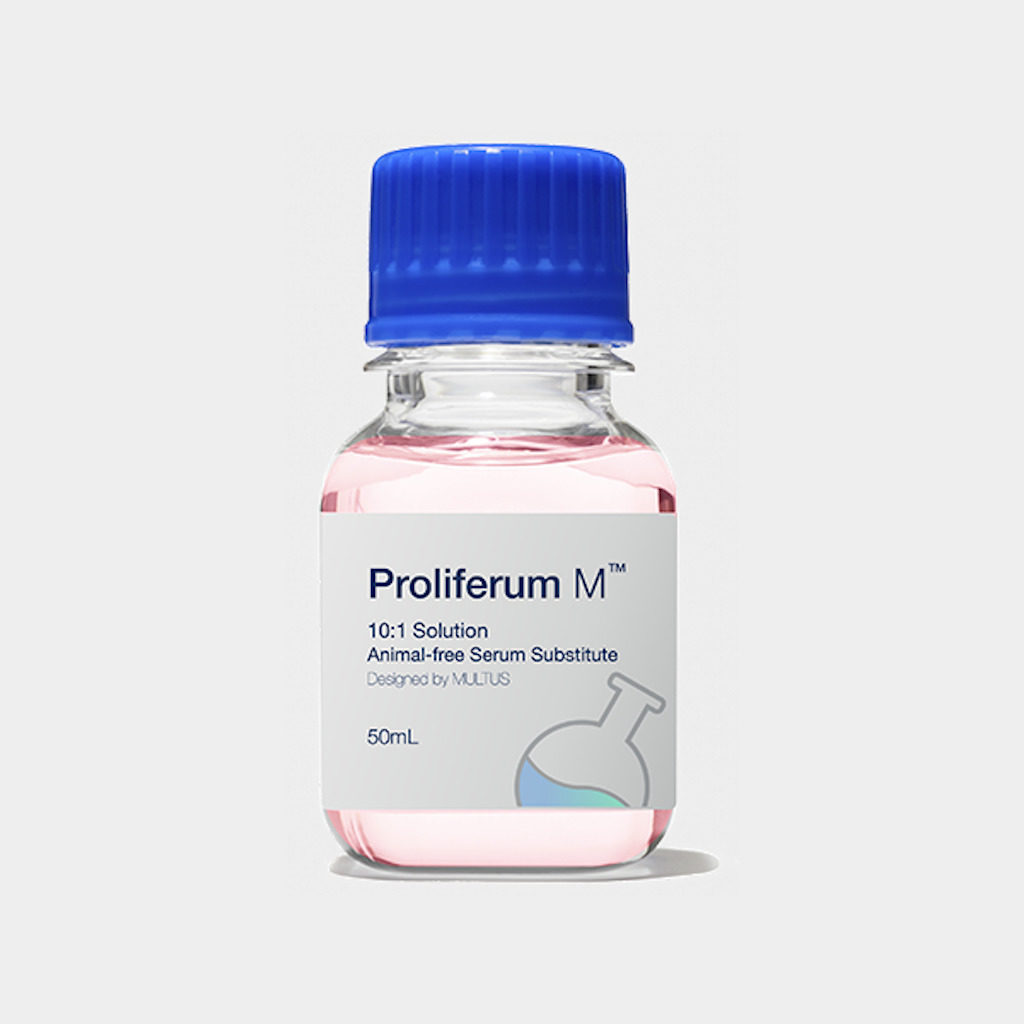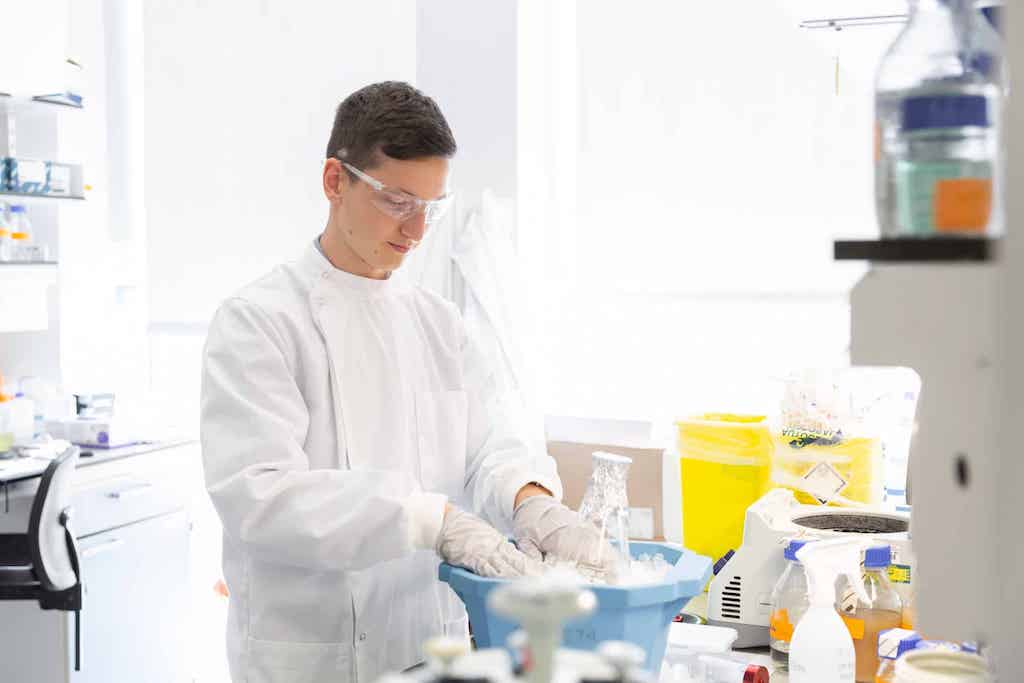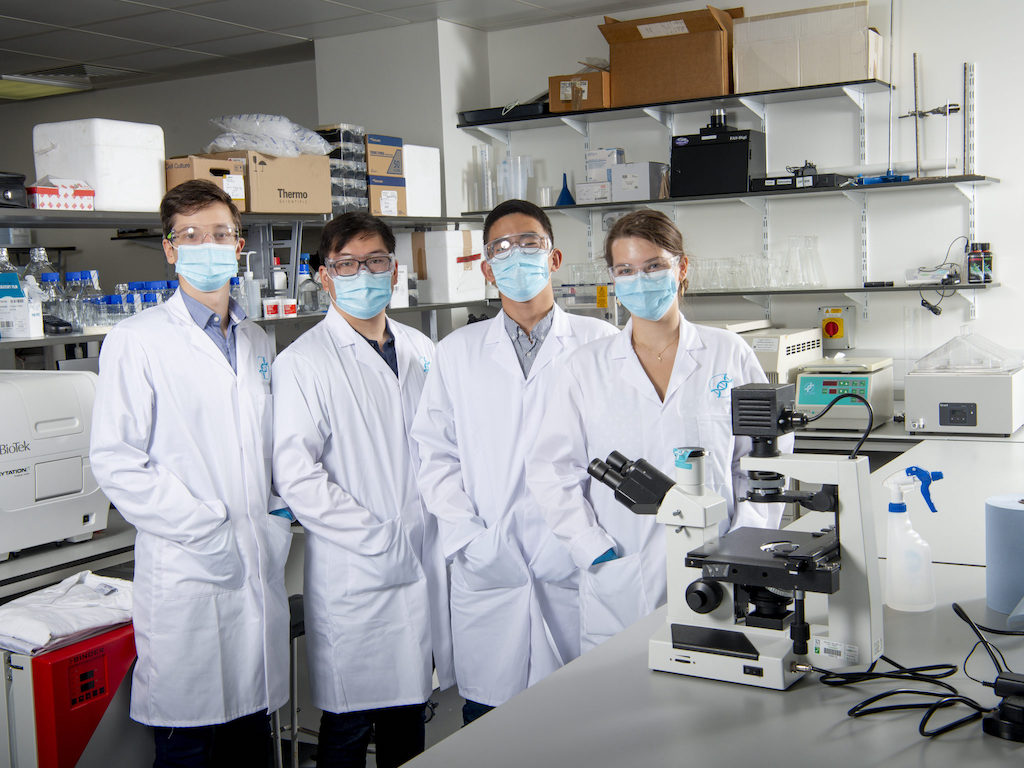3 Mins Read
London-based startup Multus Biotech has just raised £1.6 million in a round backed by global VCs and UK Research and Innovation (UKRI). Proceeds from the round will help the startup launch its low-cost animal-free growth media, designed to make cultivated meat “affordable, scalable and profitable”.
Multus has secured £1.6 million in a new fundraising round joined by UKRI, the British government-backed agency funding science and research. UKRI awarded the startup a £106,000 equity-free grant. The round was joined by SOSV, the venture capital behind the tech accelerator IndieBio, which Multus graduated from in 2019.
Other investors included Zero Carbon Capital and Marinya Capital, as well as angel investors Sake Bosch and Alvaro Martinez Barrio.
Bringing animal-free growth media to market

Multus says the fresh funds will allow the team to launch its flagship product, Proliferum M. It is described as a “next-generation replacement” for existing animal-based growth media like FBS. FBS, or fetal bovine serum, is extracted from the blood of unborn cows. In addition to being non-slaughter-free, the ingredient is highly expensive.
Currently, it is estimated that growth factors account for anywhere between 55-95% of the marginal cost in manufacturing cell-based foods.
Multus wants to bring these costs down with Proliferum M, which was developed with the firm’s proprietary protein engineering technology. It plans to launch on the market by the end of this year and increase production by 2022.
“Proliferum M will allow companies to grow cost-competitive cultivated meat products as a viable alternative to industrial farming,” states the company.

Lower costs over time
Multus says that it wants to lower costs for cell-based meat makers in order to make sustainable choices “affordable for everyone”. Growing meat directly from cells eliminates the need to raise and slaughter livestock, an industry that is currently driving 18% of global GHG emissions.
Right now, Multus is in the stage of formulating its serum. Once it begins production and ramps up capacity, it estimates that Proliferum M will cost less than $1 per litre by 2026. That’s far lower than the $200 price tag for each litre of FBS.
At the moment, the serum is still not 100% animal-free, but the startup is working towards finding replacements for all animal-derived feed ingredients.

More startups developing FBS-free solutions
While still a novel sector in cell-ag, more startups are now working on FBS-free replacements that are cost-efficient and cruelty-free.
Future Fields, a Y Combinator-backed startup based in Canada, has created an FGF2 growth factor protein that doesn’t require FBS. It recently secured $2.2 million in a seed round to fuel its platform that will help “unleash cellular meat as a competitive mass-market product”.
In Singapore, cell-based milk maker TurtleTree Labs launched a separate venture dedicated to lowering costs of growth factors. Called TurtleTree Scientific, the company is now producing food-grade growth factors at high-yields in partnership with Dyadic.
Lead image courtesy of Multus.




